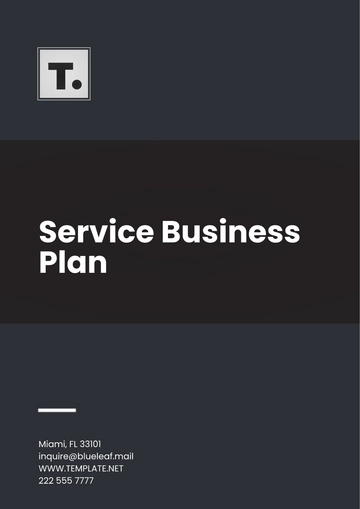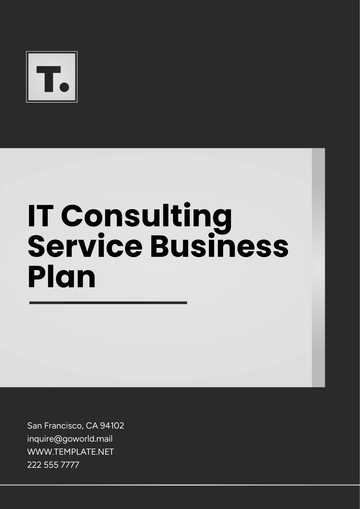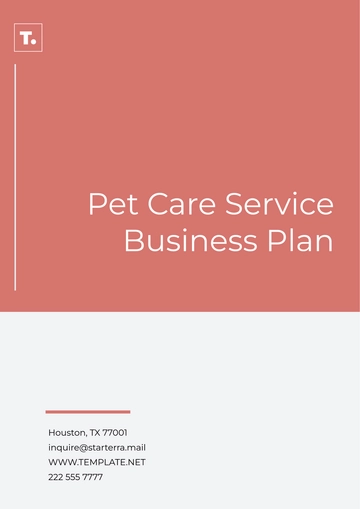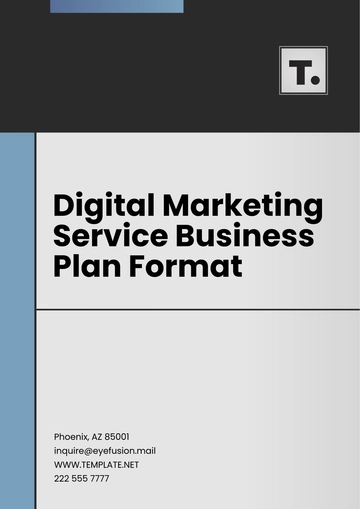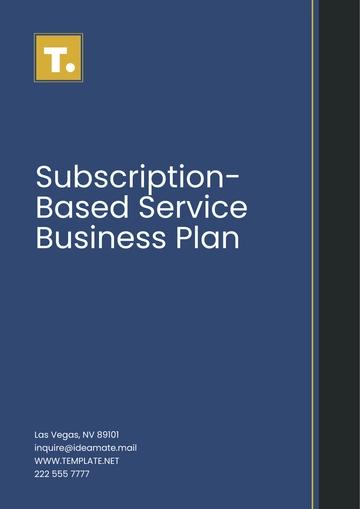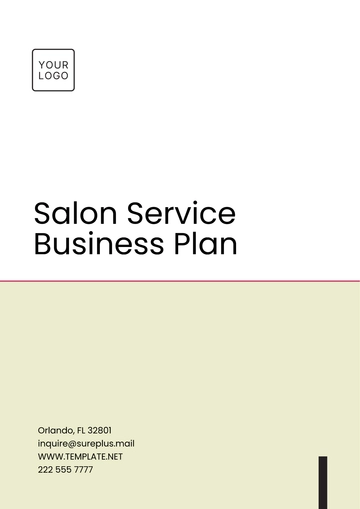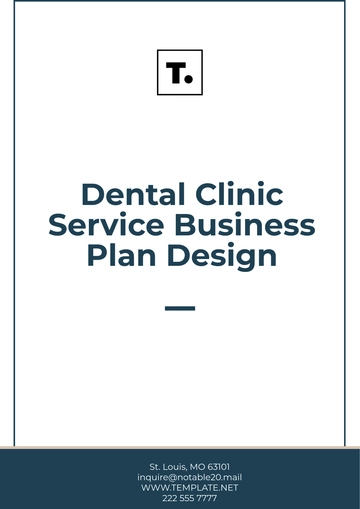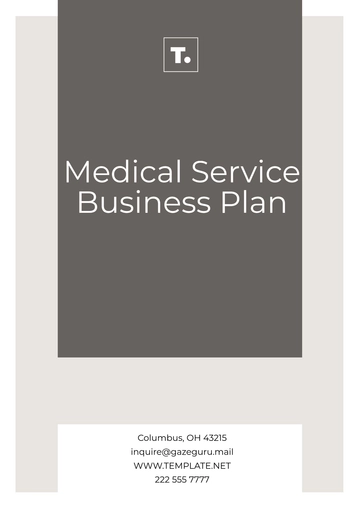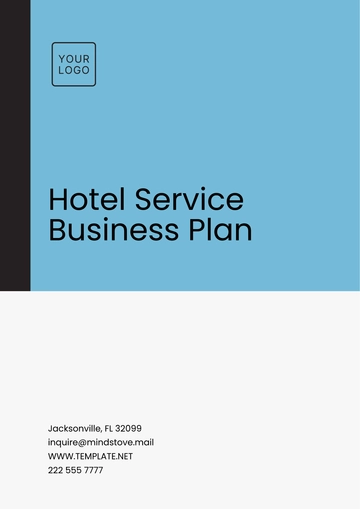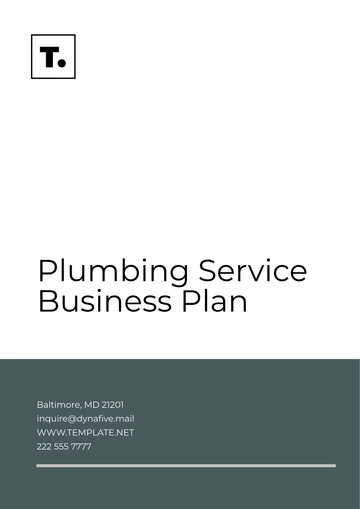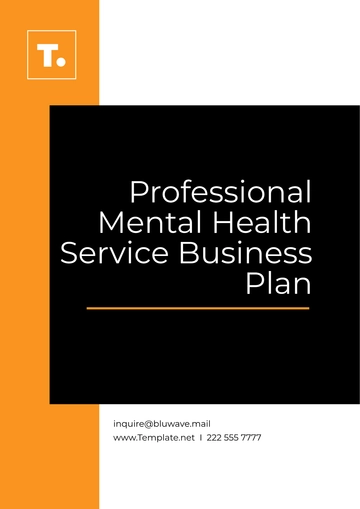Free Professional Mental Health Service Business Plan
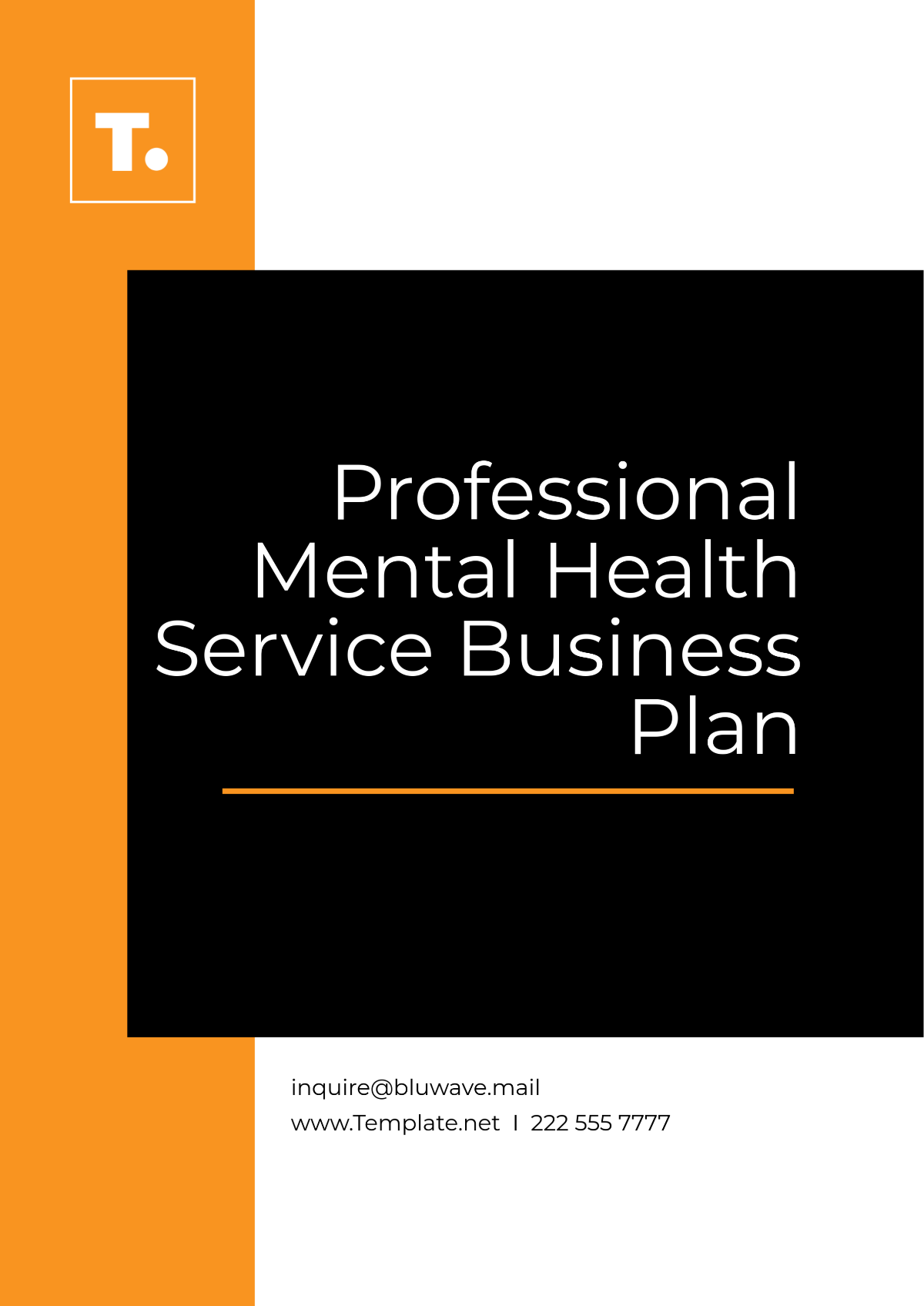
Prepared by: [Your Name]
Company: [Your Company Name]
Date: [Date]
1. Executive Summary
The purpose of this business plan is to outline the strategy and execution required to launch a mental health service dedicated to providing affordable, accessible, and comprehensive mental health care. Our services will include counseling, therapy, psychiatric evaluations, medication management, and specialized mental health programs tailored to the unique needs of individuals. The service will focus on creating a welcoming environment where mental well-being is prioritized and nurtured. Our mission is to eliminate barriers to mental health care by offering affordable services and making mental health support accessible to everyone, regardless of socioeconomic status.
2. Company Description
Mental Health Service (MHS) is a private mental health care provider established to improve the mental well-being of individuals. Our goal is to provide a full spectrum of mental health services, including counseling, therapy, psychiatric evaluations, and specialized support programs. We operate with a commitment to quality care, affordability, and patient confidentiality. MHS aims to foster mental well-being in communities by ensuring that mental health services are inclusive and personalized.
Mission Statement
To provide comprehensive and compassionate mental health care that is accessible, effective, and affordable for individuals from all walks of life.
Vision Statement
To become a leading provider of accessible mental health services that transform lives and foster healthier communities.
3. Key Services Offered
Counseling and Psychotherapy:
Individualized counseling and psychotherapy sessions for clients struggling with mental health challenges such as anxiety, depression, and trauma.Psychiatric Evaluation and Medication Management:
Professional psychiatric assessments and the prescription and management of medication to support mental health recovery.Group Therapy Sessions:
Peer-support group therapy, focuses on common issues such as stress, grief, and addiction.Workshops and Educational Programs:
Interactive workshops dare esigned to promote mental wellness, educate the public on mental health issues, and reduce stigma.Crisis Intervention:
Immediate support and intervention services for individuals in mental health crises, ensuring safety and appropriate follow-up care.
4. Market Analysis
A. Industry Overview
The mental health industry is rapidly expanding due to growing awareness about the importance of mental well-being. According to recent reports, mental health disorders are increasingly recognized as a public health priority. Conditions such as anxiety, depression, and substance abuse are rising, thereby intensifying the demand for mental health services.
B. Target Market
Our services will primarily target the following groups:
Adolescents: Aged 12-18, facing challenges such as peer pressure, academic stress, and identity development.
Adults: Aged 19-64, dealing with workplace stress, relationships, life transitions, and mental health conditions.
Seniors: Aged 65+, experiencing isolation, grief, and age-related mental health concerns.
Organizations and Corporations: Offering mental health support as part of employee wellness programs.
Schools and Universities: Offering counseling and workshops for students.
C. Competitive Analysis
The mental health market is fragmented, with several key competitors offering traditional therapy and counseling services. However, many of these services remain inaccessible due to high costs or lack of personalized care. MHS differentiates itself by offering a sliding scale fee structure, telehealth options, and a holistic approach to mental health that emphasizes community engagement and support.
5. Marketing Strategy
A. Branding and Positioning
MHS will position itself as a compassionate, reliable, and affordable provider of mental health services. We will focus on building trust through transparency, patient-centered care, and consistent outreach efforts.
C. Promotion Strategy
Develop an Informative Website: A user-friendly website featuring service details, booking options, and mental health resources.
Utilize Social Media: Active engagement through Facebook, Instagram, and Twitter to share mental health tips, client testimonials, and event promotions.
Partnerships: Collaborating with local organizations, schools, and community centers to offer mental health workshops and seminars.
Free Initial Consultations: Offering complimentary consultations to help new clients feel comfortable accessing services.
6. Operational Plan
A. Location and Facilities
MHS will operate from a central, accessible office with therapy rooms designed for confidentiality and comfort. The facility will offer a calm, welcoming environment that encourages clients to feel at ease during their visits.
B. Technology Infrastructure
Electronic Health Records (EHR): A secure system for managing client records and treatment plans efficiently.
Telehealth Services: Providing virtual therapy sessions for clients who cannot attend in person, increasing accessibility.
Appointment Scheduling Software: A user-friendly system that allows clients to book, reschedule, or cancel appointments easily.
7. Financial Plan
A. Start-Up Costs
Item | Estimated Cost |
|---|---|
Office Lease and Renovation | $50,000 |
Equipment and Furniture | $15,000 |
Technology Setup | $10,000 |
Marketing and Advertising | $8,000 |
Licenses and Legal Fees | $7,000 |
Total Start-Up Costs | $90,000 |
B. Revenue Projections
Year | Revenue | Profit |
|---|---|---|
Year 1 | $150,000 | $20,000 |
Year 2 | $250,000 | $60,000 |
Year 3 | $400,000 | $120,000 |
8. Management Team
A. Leadership Structure
The management team will consist of professionals with backgrounds in psychology, social work, and business management. The team will ensure that MHS’s operations remain aligned with its mission, values, and the highest standards of care.
B. Key Roles
Chief Executive Officer (CEO): Oversees overall business operations and strategy.
Clinical Director: Leads the clinical team and ensures high standards of care.
Operations Manager: Manages day-to-day operations and ensures smooth workflow.
Marketing and Community Outreach Manager: Focuses on growing the brand and client base.
Financial Officer: Responsible for budgeting, financial planning, and reporting.
C. Staffing Plan
Licensed Therapists: Provide individual and group counseling services.
Psychologists and Psychiatrists: Offer psychiatric evaluations and medication management.
Administrative Staff: Handle appointment scheduling, client inquiries, and office administration.
IT Support Staff: Manage the technological infrastructure and ensure data security.
9. Risk Analysis
Regulatory Risks: Compliance with state and federal mental health regulations.
Market Competition: Pressure from established providers and new entrants.
Operational Risks: Ensuring consistent service delivery and client satisfaction.
Financial Risks: Maintaining profitability while keeping services affordable.
10. Exit Strategy
In the event of future business expansion, a potential exit strategy could include selling the business to a larger health care provider or merging with an established mental health organization. This will allow for continued growth, resource optimization, and the ability to serve a broader audience.
- 100% Customizable, free editor
- Access 1 Million+ Templates, photo’s & graphics
- Download or share as a template
- Click and replace photos, graphics, text, backgrounds
- Resize, crop, AI write & more
- Access advanced editor
Streamline your mental health service planning with the Professional Mental Health Service Business Plan Template from Template.net. This fully editable and customizable template is designed for precision and clarity. Effortlessly personalize it using our intuitive Ai Editor Tool to meet your unique needs. Perfect for professionals seeking a polished, strategic, and tailored business plan.
You may also like
- One Page Business Plan
- Coffee Shop Business Plan
- Restaurant Business Plan
- Food Business Plan
- Real Estate Business Plan
- Executive Summary Business Plan
- Cover Page Business Plan
- Nonprofit Business Plan
- Daycare Business Plan
- Construction Business Plan
- Startup Business Plan
- Medical Business Plan
- Bakery Business Plan
- Service Plan
- Hotel Business Plan
- Catering Business Plan
- School Business Plan
- Healthcare Business Plan
- Transportation Plan
- Sports Plan
- Car Wash Business Plan
- Salon Business Plan
- Clothing Business Plan
- Farming Business Plan
- Boutique Plan
